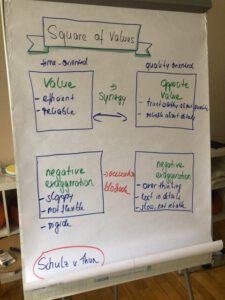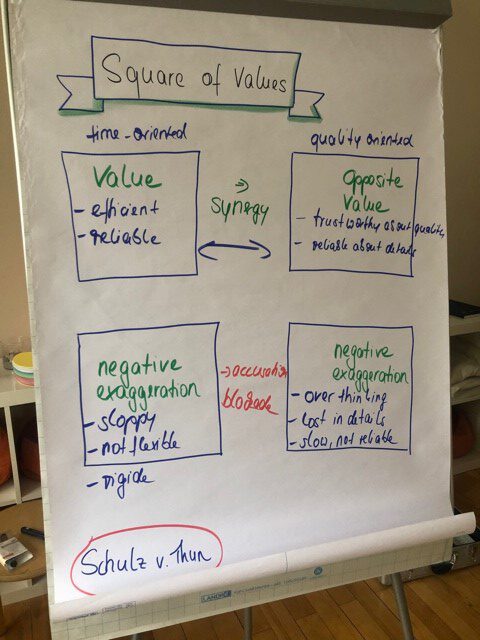 As part of the skills development training offered for female doctoral researchers, the workshop program “Resilience in Academia” took place from mid-August to mid-November, 2020. The goal of the workshops was to build resilience in the participants, to provide them with skills and strategies that enable them to deal with crisis situations. These strategies were learned and applied in small groups, allowing for independent application of these methods. The intensive collaboration in small groups also enabled the participants to build a network of colleagues from different areas of the CRC, whose support they can fall back on.
As part of the skills development training offered for female doctoral researchers, the workshop program “Resilience in Academia” took place from mid-August to mid-November, 2020. The goal of the workshops was to build resilience in the participants, to provide them with skills and strategies that enable them to deal with crisis situations. These strategies were learned and applied in small groups, allowing for independent application of these methods. The intensive collaboration in small groups also enabled the participants to build a network of colleagues from different areas of the CRC, whose support they can fall back on.
Within this workshop series, eight modules of two hours each were conducted. Each module was discussed with the help of a module manual in small groups, independently or with professional facilitation. Through exercises, self-reflections and reflections in the group, the participants were able to share their experiences on resilience factors and receive new impulses. In addition, the participants were introduced to tools such as giving positive feedback and the idea basket.
Through the course, participants learned that they often have to deal with similar difficulties in everyday work life, whether it’s dealing with conflict situations or hiding in a victim role, or uncertainty about the future. Discussing the many common challenges had a calming effect, because as an individual you know that you are not alone with the problem. Participants were able to put themselves in the shoes of other participants and, if necessary, offer tips and suggestions for solutions in the form of peer coaching. In addition, the exercises and self-reflections on the various resilience factors provided grounds to consider how the personal attitude towards a problem can be crucial in order to find a solution.
A strong relationship of trust has formed within the established groups, which is indispensable for peer coaching. Each of the participants has established a network to turn to for advice and support. Thus, participants decided to maintain contact within the small groups and to refresh the learning content on a regular basis.
